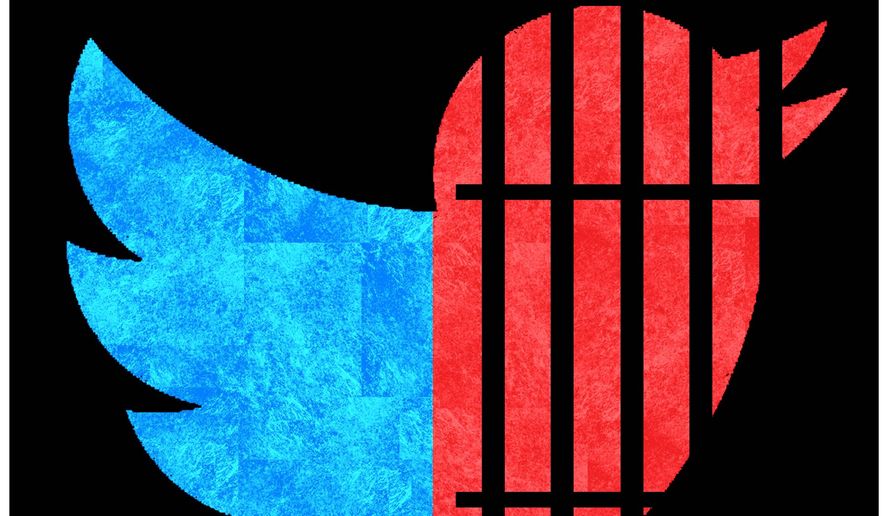OPINION:
In a recent interview with Howard Stern, Whitney Cummings, an incredibly talented writer and comedian, opened up about how she is afraid to say certain things for fear that she’ll be shut down and silenced by the Twitter mob. This is a problem for many reasons.
Miss Cummings, who at one point had her own network show and has writing credits including the reboot of “Roseanne,” has found a great deal of her success by being outspoken, edgy and making hilarious observations that many people would think, but are too afraid to say. That’s the job of a comedian: To be different, connect the odd dots of the world and say things that others may be too afraid to say. Cowering to a mob of Twitter accounts kneecaps the profession and begins the slow roll of neutralizing free speech.
Who comprises a Twitter mob anyway? For the most part we don’t know, but you can see simple patterns if you pay close attention and understand how social media reach actually works. This is the point where I inform you that in addition to being a comedian, I have extensive experience in digital marketing. From that experience, I can tell you, the mob isn’t as big as one might expect.
I have been attacked by Twitter mobs before, and the pattern is similar. Suddenly out of the blue, an account with 100 or less followers comments on a tweet of yours they don’t agree with and it immediately has 30 to 50 likes on it. As someone who has more than 200,000 followers, I can tell you that it’s tough to get that many likes in under a few minutes, let alone immediately with an account my size, so when an account with even 1,500 followers gets that many likes immediately, you know that it is just one person operating a large amount of multiple accounts.
From there, each of those accounts will weigh in and begin driving more attention to the tweet and you, who they are attacking, in order to bring a “Twitter mob.” Those accounts are likely similar trolls who behave in a similar way. I say all that to say that the mob that wants to silence edgy comedy or things they don’t agree with, may only be a few people.
The size of the mob, which may only be a few people, is important to note when bringing up the fact that millions have been entertained by Miss Cummings’ edgy work. The fact that anyone would limit the expression of their art because of the threat of a few, or that anyone or any business would change their behavior based on social justice whining regresses not only free speech, but also our ability to function as adults in the real world.
Twitter mobs have no desire to make society better. They simply want to see what type of power they can have over celebrities and companies. This strategy has even been used in a sort of a “reverse psychology” scenario to promote films. Just look at what happened recently when Disney announced that it was casting an African-American woman to play “The Little Mermaid.” There was immediate outrage that a non-white woman was cast in the role. A mob had formed and a trend had started on Twitter promoting the movie based on less than four unverified Twitter accounts with tiny followings saying they didn’t like the concept. Suddenly, every major media outlet in the world was covering the film and its casting, which otherwise wouldn’t have made waves. Yes, with my tinfoil conspiracy theory hat on, I am saying that I believe this was simply a marketing strategy.
Businesses, comedians and everyday people should never be influenced by the mob. They aren’t as big as they seem to be, they don’t have any good intentions, and giving in only empowers them to attempt to take away more. Every apology or product taken off the shelves (that they weren’t going to buy anyway) is like a sad reward ribbon for them. It empowers them to wait around and look for their next target.
How do they even pick their targets? One day it’s a shirt that has a #FakeNews logo on it — the next it’s people who say Baltimore is a bad city — the next it’s a new word we never knew to be offensive before they declared it as such (“Fredo,” for instance). These shifting issues expose the mob for what it really is: A disorganized group of bullies with an ever-evolving list of implausible arguments for things to be offended by.
So what should comedians, businesses and even you do if you’re feeling pressure from Twitter mobs? Log out of Twitter, turn off your computer, put your phone down and continue living your life any way you want to. Why would you follow the arbitrary and ever-shifting rules of a few trolls with a pile of fake social media accounts when you live in America where we are free to say and do whatever you’d like?
• Tim Young is a political comedian and author of “I Hate Democrats/I Hate Republicans” (Post Hill Press).




Please read our comment policy before commenting.